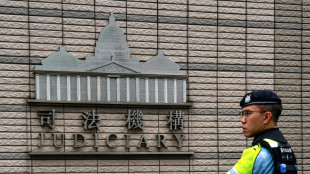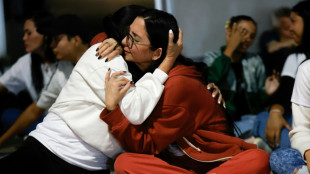Nearly 50 dead after Hurricane Melissa thrashes Caribbean
The death toll from Hurricane Melissa rose Thursday to nearly 50 people, officials said, after the ferocious storm devastated Caribbean islands and was bearing down on Bermuda.
Flooding was expected to subside in the Bahamas although high water could persist in Cuba, Jamaica, Haiti and neighboring Dominican Republic, the US National Hurricane Center (NHC) said.
The storm, one of the most powerful ever recorded, was made four times more likely because of human-caused climate change, according to a study by Imperial College London.
Tropical storm conditions were occurring on Bermuda late Thursday and the island was under a hurricane warning, with maximum sustained winds of 100 miles (155 kilometers) per hour, the NHC said.
The government urged residents to take precautionary measures against the still-powerful storm.
Melissa smashed into both Jamaica and Cuba with enormous force, and residents were assessing their losses and the long road to recovery.
"The confirmed death toll from Hurricane Melissa is now at 19," including nine in Westmoreland and eight in St. Elizabeth, both parishes in the Caribbean island's hard-hit west, Information Minister Dana Morris Dixon told local news outlets including the Jamaica Gleaner.
Communications and transportation access remains largely down in Jamaica and Cuba, and comprehensive assessment of the damage could take days.
In impoverished Haiti, the country's civil defense agency said Thursday that the death toll had risen to 30, with 20 people injured and another 20 missing.
It said more than 1,000 homes have been flooded, with some 16,000 people in shelters.
In the east of the communist island of Cuba, battling its worst economic crisis in decades, people struggled through inundated streets lined with flooded and collapsed homes.
The storm smashed windows, downed power cables and mobile communications, and tore off roofs and tree branches.
Melissa "killed us, because it left us destroyed," Felicia Correa, who lives in the La Trampa community near El Cobre, told AFP.
"We were already going through tremendous hardship. Now, of course, we are much worse off."
Cuban authorities said about 735,000 people had been evacuated -- mainly in the provinces of Santiago de Cuba, Holguin and Guantanamo.
- 'Disaster area' -
The United States meanwhile has mobilized disaster assistance response teams and urban search and rescue personnel, and the teams were currently on the ground in the Dominican Republic, Jamaica and the Bahamas, according to a State Department official.
Teams were en route to Haiti too.
Secretary of State Marco Rubio also included ideological foe Havana, saying the United States is "prepared to offer immediate humanitarian aid to the people of Cuba affected by the Hurricane."
The UK government announced £2.5 million (about $3.3 million) in emergency funding for the region, and also said it was chartering "limited" flights to help British nationals leave.
In Jamaica, UN resident coordinator Dennis Zulu told reporters Melissa had brought "tremendous, unprecedented devastation of infrastructure, of property, roads, network connectivity."
Authorities there have said confirming reports of deaths was difficult as access to the hardest-hit areas was limited, and some people were still unable to reach family and loved ones.
- 'Everything is gone' -
Hurricane Melissa tied the 1935 record for the most intense storm ever to make landfall when it slammed Jamaica on Tuesday, according to the US National Oceanic and Atmospheric Administration.
In Seaford Town, farmer and businessman Christopher Hacker saw his restaurant and nearby banana plantations flattened.
"Everything is gone," he told AFP.
Such mega-storms "are a brutal reminder of the urgent need to step up climate action on all fronts," said UN Climate Change Executive Secretary Simon Stiell.
M.Yoo--SG

 London
London

 Manchester
Manchester
 Glasgow
Glasgow
 Dublin
Dublin
 Belfast
Belfast
 Washington
Washington
 Denver
Denver
 Atlanta
Atlanta
 Dallas
Dallas
 Houston Texas
Houston Texas
 New Orleans
New Orleans
 El Paso
El Paso
 Phoenix
Phoenix
 Los Angeles
Los Angeles



